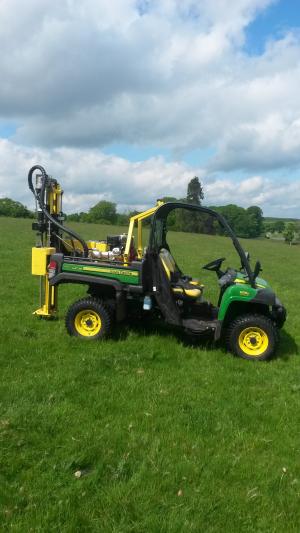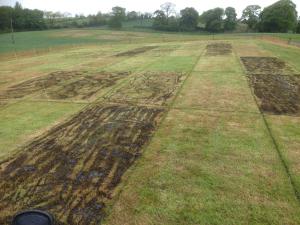Soil carbon sequestration projects

The Department of Agriculture and Rural Development (now DAERA) are supporting an AFBI research project (No. 48073) on “Evaluation of the potential for changing land use practices to encourage soil and grass carbon sequestration”
The project aims to address how common agricultural practices such as reseeding and nutrient fertilization (e.g. animal slurry or NPK fertilization) might influence soil carbon stocks in agricultural grasslands.
Research work includes:
- direct measurements of carbon stocks at different soil depths
- investigation of the effects of sward age (or frequency of disturbance by cultivation, e.g. reseeding) and nutrient application (i.e. animal slurry) on soil carbon stocks
- assess the biogeochemical nature of the carbon held within the stock (i.e. soil carbon “quality”) to indicate the relative likelihood of carbon loss or gain with time

The vulnerability of this carbon to loss by cultivation during reseeding will be investigated as well as the potential mitigation of minimising cultivation (no-till). The economics of adopting any of the mitigating measures identified will be analysed within the project. Economic feasibility of adopting additional activities within the Land Use, Land-Use Change and Forestry (LULUCF) inventory of greenhouse gas emissions for Northern Ireland will also be considered in the project.
A previous DARD soil carbon sequestration project titled: “Estimates of carbon sequestration by grassland in Northern Ireland” by Laidlaw S., Christie P., Wasson E-A, and Watson C showed that soil carbon sequestration rates for well managed swards in Northern Ireland is likely to vary between 0.48 and 1.28 tonnes carbon/hectare/year.
